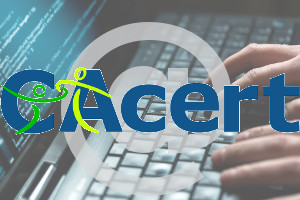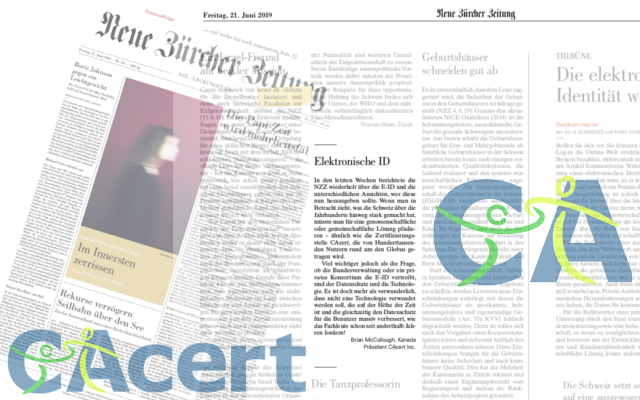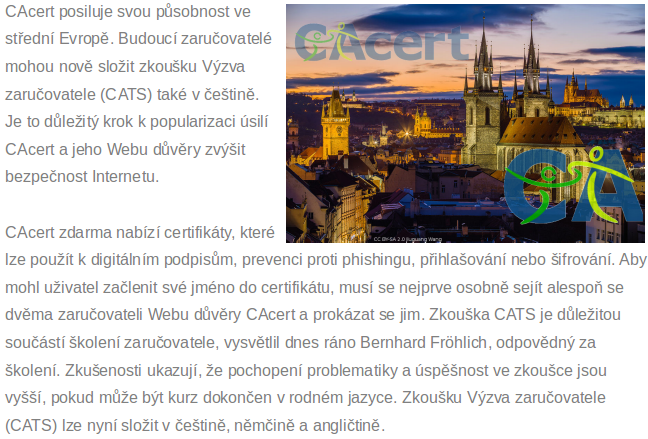 On saturday, 13th of July 2019, in a joint operation, CAcert Infrastructure Team and CAcert Critical Team updated the operation system of CAcert’s infrastructure in the Netherlands sucessfully. The system is now running on the Debian Buster OS release that has been released by the Debian project last weekend.
On saturday, 13th of July 2019, in a joint operation, CAcert Infrastructure Team and CAcert Critical Team updated the operation system of CAcert’s infrastructure in the Netherlands sucessfully. The system is now running on the Debian Buster OS release that has been released by the Debian project last weekend.
Timing
The teams started this morning at around 9:30 CEST and finished the upgrades at 16:30 CEST, some of our applications turned back to service afterwards. The system is running smoothly now.
What is new?
The new OS release provides some features that are important for our infrastructure and will allow better operation of our applications in the future:
- LXC has been upgraded from the somewhat primitive 0.8.0 pre-release to LXC 3.0.3 that has a proper API, better security and which will help application administrators
- Firewalling/forwarding/NAT should now be faster then the old iptables setup. We still use ferm as a wrapper but the CAcert Infrastructure Team is already considering switching to native nftables rules that will provide a similar but faster rule set.
- Further details about this major update can be read on our mailing list.
CAcert Infrastructure Team Lead JanDD is happy that we could finish this big upgrade and that we could implement all these changes for you. In a statement made on the early saturday evening, he thanked again to Wytze from CAcert Critical Team for his great support during the day.
The volunteers from these two teams worked for seven and a half hours today, Saturday, to keep our systems up to date. Join us in thanking them and donate now at your own discretion. Your donation will only be used to pay for the infrastructure (hosting, electricity in the data center). «I say thank you to Jan and Wytze and their team with a donation!»
If you find any issues that might be caused by the upgrade feel free to file bugs on https://bugs.cacert.org/ (at project Infrastructure > Infrastructue hosts).
If you want to join one of our teams, please join the development mailing list or write to the secretary.





